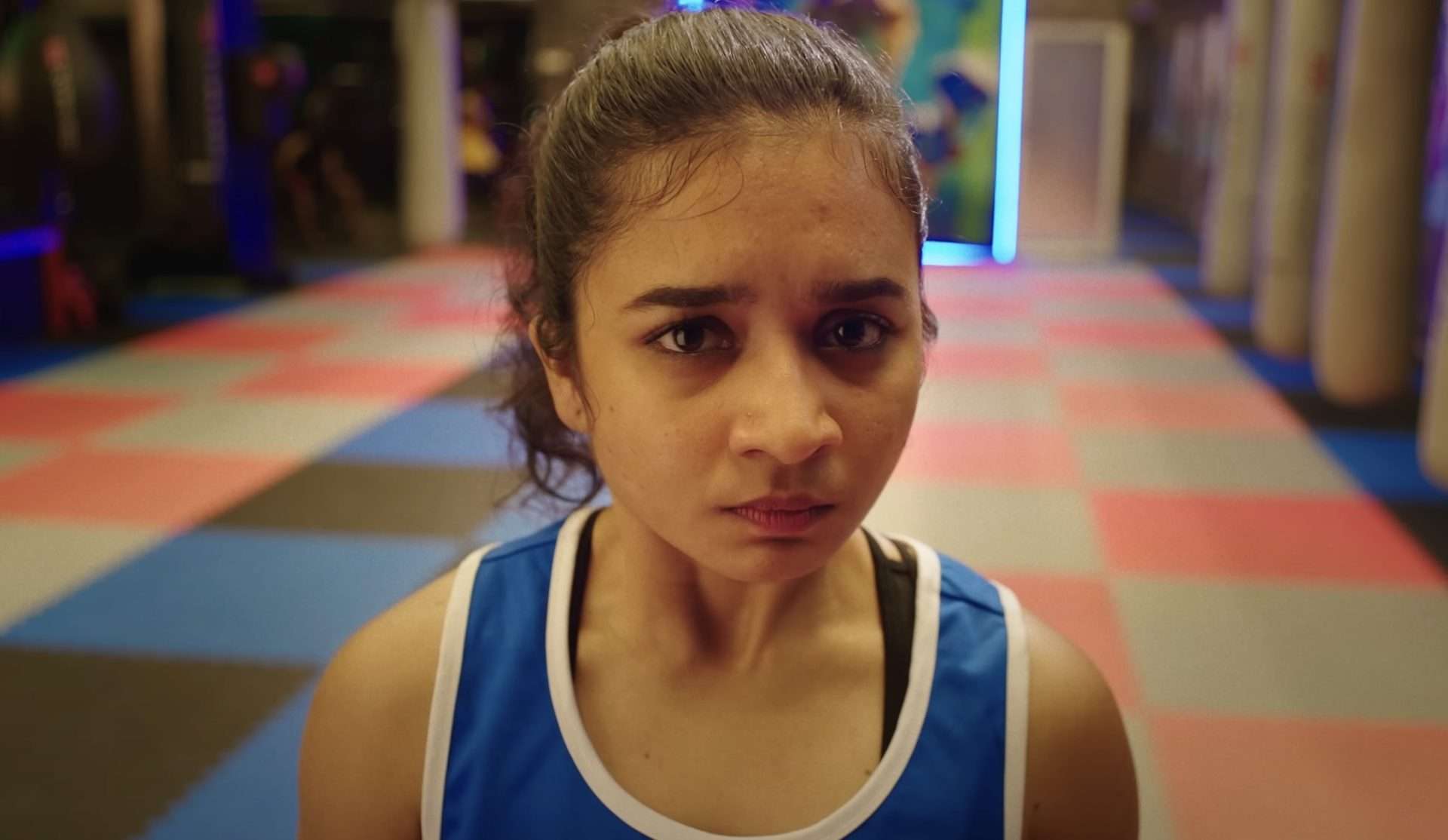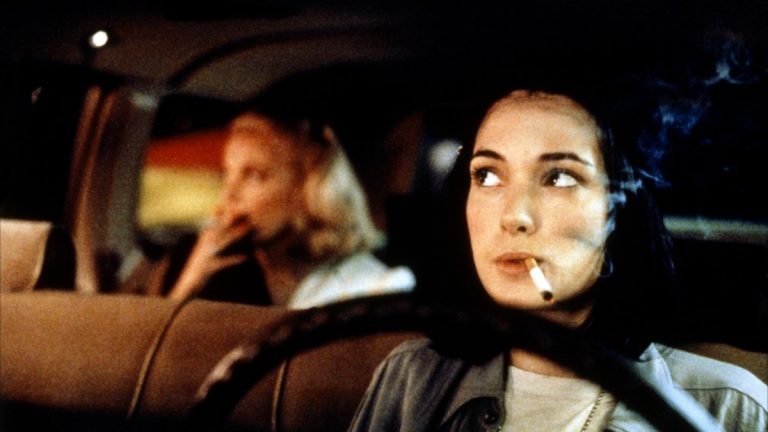Sivaprasad’s “Maranamass” shoots off from a serial killer who targets old people and leaves a banana as his defining trace. He lets loose a string of manic unrest in Kerala. The needle of suspicion spins in several directions, especially towards the good-for-nothing, Luke (Basil Joseph). He is the ‘sigma male’ whose trail of erupting public disorder is well-known.
A YouTuber, he proclaims to do whatever he does for the well-being of the community, no matter if it brings a lot of headaches and recklessness. He’s being sent off to Czechoslovakia, so he says, so that he can no longer bother anyone. He’s also in a complicated situation with his on-off girlfriend Jessy (Anishma Anilkumar). She’s clearly fed up with him and doesn’t want to have anything to do with him, but he’s insistent on being around. He wants to show he’s available for every need of hers.
The serial killer’s identity isn’t dangled as a secret in the narrative; rather, you are made privy to his agency and commitment to his crimes. The screenplay, written by Sivaprasad and Siju Sunny, features a bus driver (Suresh Krishna), a bus conductor (Siju Sunny). The former is on the anvil of marriage, the latter still pining for his long-lost father. There’s even a police officer nursing psychological issues. He’s mourning his lost dog and is also involved in searching for the serial killer. However, the film is so absorbed in its comic impulses that it entirely sidelines or, rather, forgets the investigation, pushing it to the periphery.
“Maranamass” feels too scattered, and the comedy laboured after a point. The trouble begins when you can clearly see the strings being pulled, straining efforts to make matters more convoluted, creating a slew of impediments for the characters. Caper comedies are designed to rely on messy situations, characters barely equipped to tackle a host of unforeseen challenges. The pleasure comes when the writing prises a deranged humour from such situations, ranging from mildly convenient to epic disasters on the cusp.
When a faux pas happens, it can trigger a spate of comic chaos. It’s this wild unpredictability, tinged with menace, that Sivaprasad tries to tackle. It’s not always successful and engaging. There are gaping issues of coherence, and persuasion is a tall ask in several situations, but the film seeks to weather all cynicism and get by on the strength of sincerity. The serial killer (Rajesh Madhavan) doesn’t exude threat so much as he does in looking terribly indisposed when his attempts to get his victim are bungled by the unlikely team that forms in the bus.
It’s the kind of film where even grandfather figures who are serial harassers get a clean pass because they are old and sentimentality demands front billing. You squirm when a film plays fast and loose with such unpleasant matters, rubs it with comedy and a sequin of misty-eyed emotion, almost diminishing it and replacing its urgency.

What should have been a blast ends up dull, plodding, overly calculated to evoke a certain reaction. The viewer is tugged to experience exasperation. You are vexed with this bunch acting like they have all lost their basic intelligence. Perhaps they are lacking in any brain cells. When a film stretches plausibility to a damning degree, even the most ridiculous scene, meant to be taken in such a spirit, lands in an ungainly shape.
Basil Joseph overexerts as if the entire film has been dumped on him to carry through to the finish line. Supporting characters like Aruvi and Jithin don’t register. I’m not sure why the film expended so much time on the film’s central victim, his repeated, consistent misdemeanours with women.
“Maranamass” needed greater conviction, more gags, and an ease in weaving through the escalating mess. Jumbled circumstances make for solid entertainment, especially when all characters are singularly defined, exerting individual quirks and a sharp sense of personhood. The film lacks this, corralling heavily around the killer and Basil’s character, harping on the latter’s essential, ultimate kindness and soft-heartedness.
It does the film no good, stunting it and reducing the possibility for further pandemonium. Much of the film is set inside a bus. When it does disembark, the film becomes even more conventional and trite, and the humour has already long started appearing jaded.




![Disappearance [2017]: ‘TIFF’ Review](https://79468c92.delivery.rocketcdn.me/wp-content/uploads/2017/09/TIFF_HIGH_ON_FILMS_disappearance_cwc__09-768x384.jpg)



